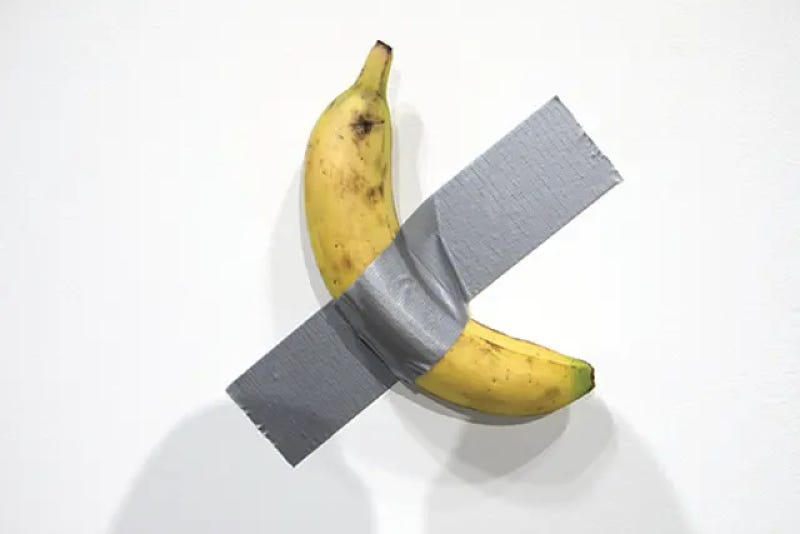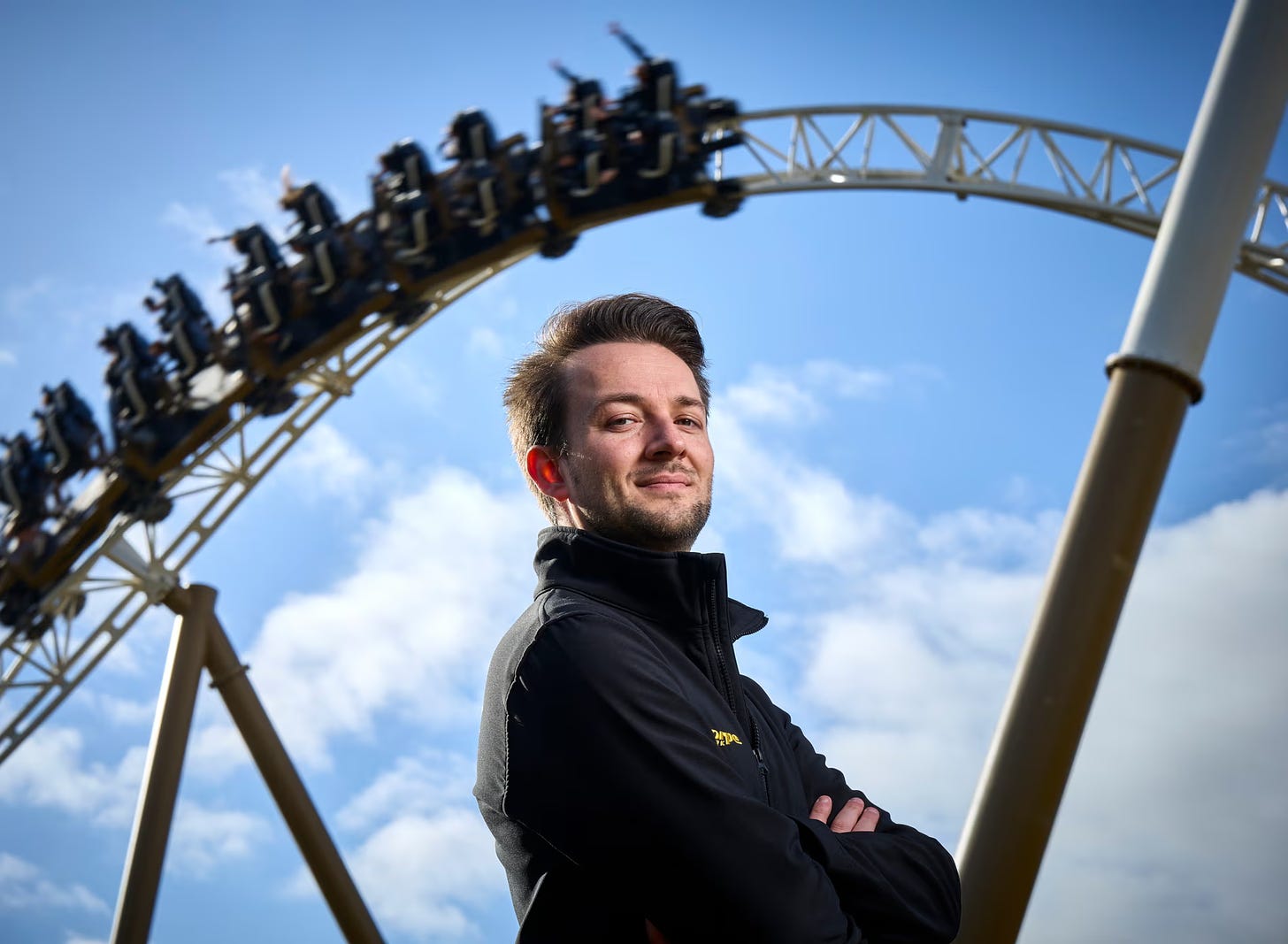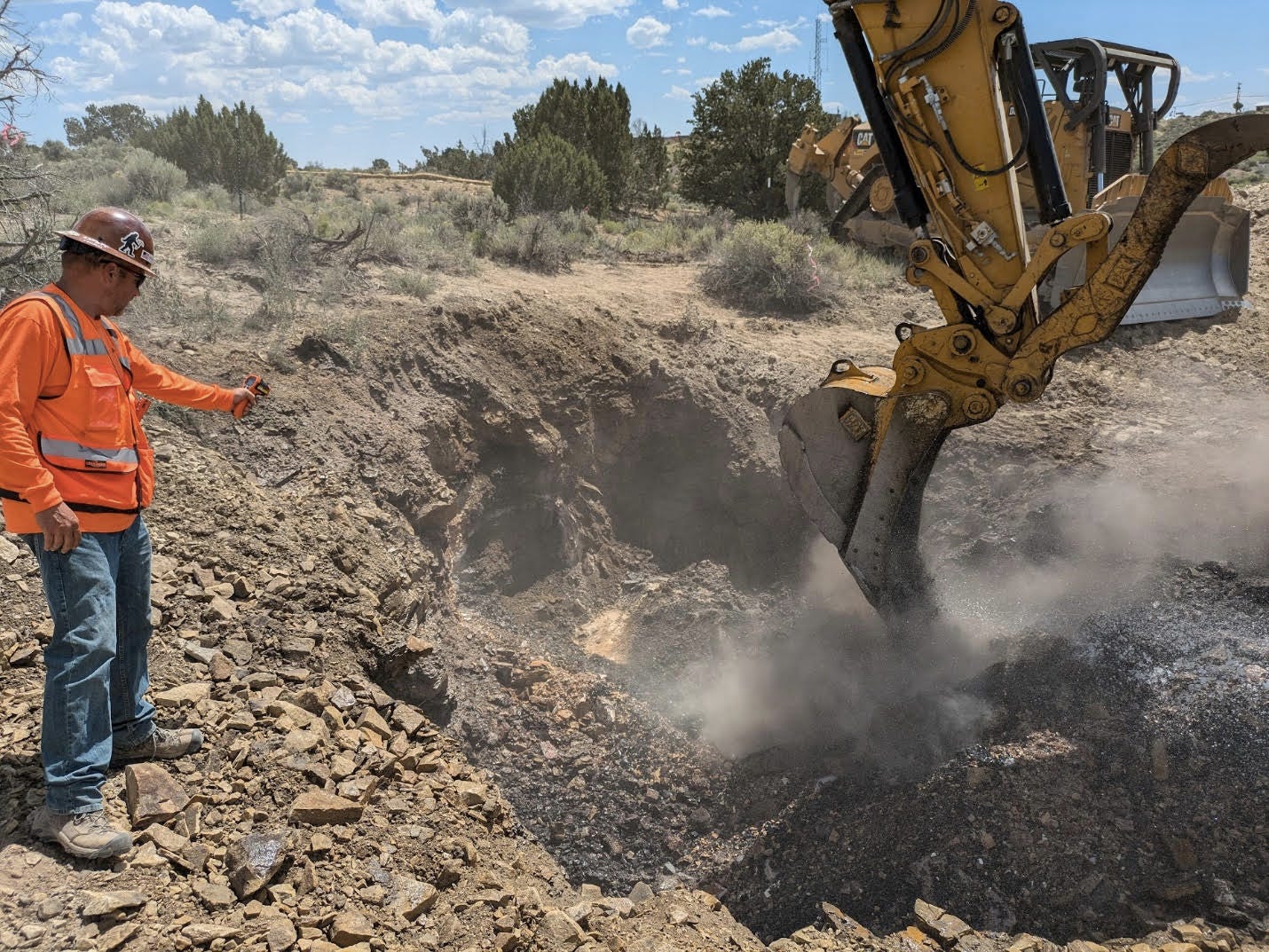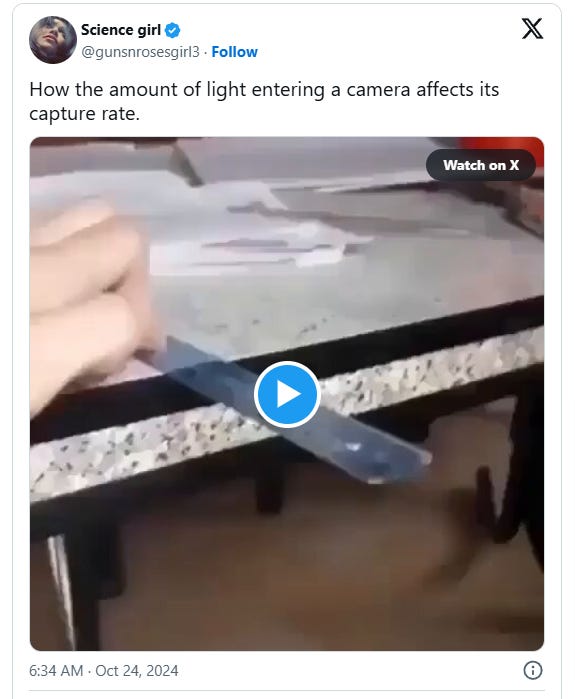Banana duct-taped to a wall could sell for more than $1M
From The Art Newspaper: Maurizio Cattelan’s duct-taped banana caused an uproar at Art Basel Miami Beach in 2019 and quickly went viral as a symbol of the absurdism of the contemporary art market, though Cattelan himself described Comedian (2019), his first “sculpture” in 15 years, as “a sincere commentary and a reflection on what we value”. That value will be put to the test next month, when one of the three editions of Comedian goes up for sale at Sotheby’s New York. Made up of a banana duct taped to the wall, the work includes a certificate of authenticity and instructions for how to display the sculpture. The work, which was priced at $120,000 by a gallery in Miami Beach in 2019, is estimated by Sotheby’s to sell for between $1m and $1.5m. A single banana and one roll of duct tape are included in the sale, the auction house said."
The rollercoaster king: the man behind the UK’s fastest thrill-ride
From The Guardian: "When rollercoaster fans speak of creativity, they speak of Anton Schwarzkopf, late pioneer of the loop, and Ron Toomer, who became the first engineer to haul people up more than 200ft before sending them into a drop. They speak of Alan Schilke and Jeff Pike, both admired for their structures that marry timber with steel. They speak of Werner Stengel, a living legend at 88, whose idea it was to send passengers hurtling around corners while tilted at 90 degrees. John Burton – a self-effacing aficionado of theme parks and musical theatre from Staffordshire – is an anomaly. He was only a few years on from working as a crab feeder at an English aquarium when he was invited to create his first rollercoaster. He was given an £18m budget, a patch of damp ground, and told: make it big. He was 27."
The forgotten developer of Tamoxifen, a lifesaving breast cancer therapy
From Scientific American: "In the early 1960s chemist Dora Richardson synthesized a chemical compound that became one of the most important drugs to treat breast cancer: tamoxifen. Although her name is on the original patent, until recently, her contributions had been largely lost to history. Lost Women of Science producer Marcy Thompson tracked down the chemist’s firsthand account of the history of the drug’s development. This document, mislaid for decades, describes how the compound was made and how Imperial Chemical Industries, where Richardson worked, almost terminated the project because the company was hoping to produce a contraceptive, not a cancer therapy."
The man who found himself after being missing for almost thirty years
From Now I Know: "In January 2016, a man in St. Catharines, Ontario, had a meeting with his social worker. He was 50 years old at the time and had suffered from some developmental delays. The check-in with the social worker wasn’t anything out of the ordinary, but this meeting was a bit different than the rest. The man, whose name hasn’t been reported, told the social worker that an unfamiliar name had popped into his head: “Edgar Latulip.” His social worker ran a quick Google search, and what she found was sitting right in front of her. Edgar Latulip grew up in Kitchener, Ontario, about an hour and a half away from St. Catharines. But no one had heard from him in nearly three decades."
New Mexico puts out fires that may have been burning for over 100 years
From SourceNM: "Two fires burning in abandoned coal mines since at least 2011 – and possibly much longer – were finally extinguished near Gallup recently. The mines were first established in the late 1800s and operated until the early 1900s, according to a news release from the state Energy, Minerals and Natural Resources Department. In 1891, a fire broke out near one of the mines, called “Navajo No. 1,” and the mine was sealed in 1905 as a result. But it’s unclear from state records whether sealing the mine actually extinguished the fire, a spokesperson said. More than 100 years later, staff from the state’s Abandoned Mine Land Program encountered fires still burning at both that mine and at a separate mine, known as “Enterprise-Brown.” That was in 2011."
How the amount of light affects a camera's video capture
Acknowledgements: I find a lot of these links myself, but I also get some from other newsletters that I rely on as "serendipity engines," such as The Morning News from Rosecrans Baldwin and Andrew Womack, Jodi Ettenberg's Curious About Everything, Dan Lewis's Now I Know, Robert Cottrell and Caroline Crampton's The Browser, Clive Thompson's Linkfest, Noah Brier and Colin Nagy's Why Is This Interesting, Maria Popova's The Marginalian, Sheehan Quirke AKA The Cultural Tutor, the Smithsonian magazine, and JSTOR Daily. If you come across something interesting that you think should be included here, please feel free to email me at mathew @ mathewingram dot com








